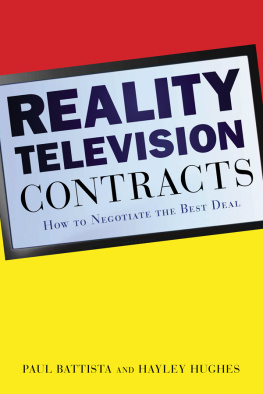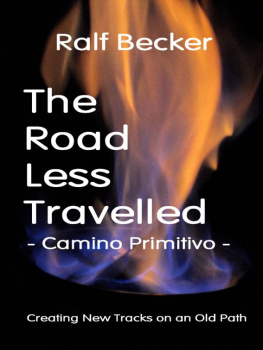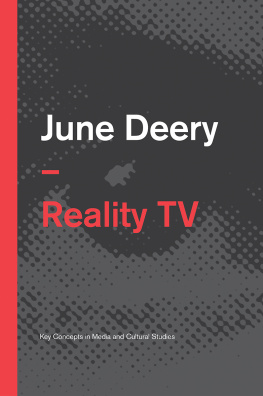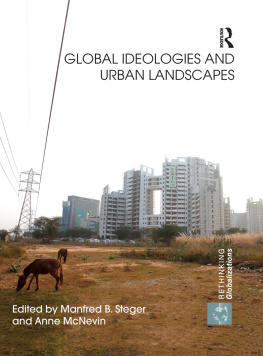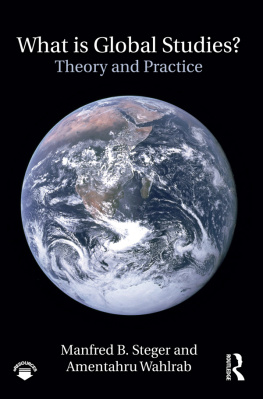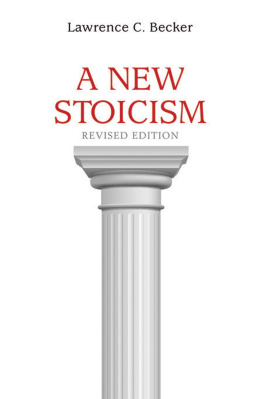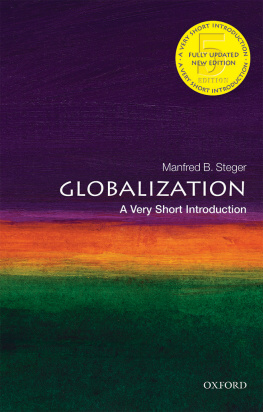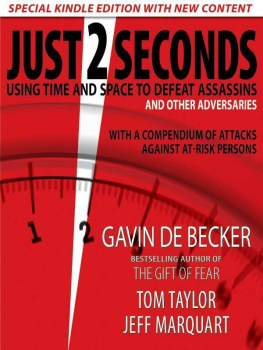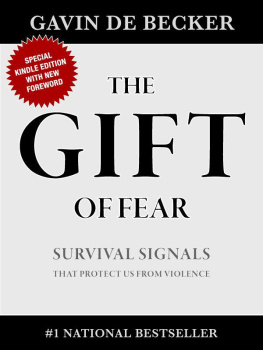Creating Reality in Factual Television
Creating Reality in Factual Television analyses the uneasy interaction between economics, culture, and professional ethics in reality and documentary television storytelling. Through the frankenbite, an editorial tool that extracts and re-orders the salient elements or single words of a statement, interview, or exchange into a revealing confession or argument, this book explores how and why editors manipulate truth in factual television.
The author considers how the editing of documentary television is increasingly following reality televisions dictate to entertain instead of inform, how the real and the truth fall victim to the demand to tell entertaining stories, and how editors must compromise their professional ethics as a result. Drawing on interviews with 75 North American and European editors that explore their experiences and opinions of reality and documentary television practices, and their views on their responsibilities and loyalties in the field, Creating Reality in Factual Television illuminates the real and potential ethical dilemmas of editorial decision making, the context in which decisions are made, and how editors themselves validate the editing choices to themselves and others.
Addressing a dramatic development in contemporary media ecology the age of alternative facts this book is a useful research tool for scholars and students of documentary film, media literacy, genre studies, media ethics, affect theory, and audience perception.
Manfred W. Becker is a documentary filmmaker, editor, Ass. Professor and current Graduate Program Director in the MFA Film and MA program in Cinema and Media Studies at York University, Canada.
Routledge Advances in Television Studies
7 Contemporary British Television Crime Drama
Cops on the Box
Edited by Ruth McElroy
8 Television and Serial Adaptation
Shannon Wells-Lassagne
9 Girlhood on Disney Channel
Branding, Celebrity, and Femininity
Morgan Genevieve Blue
10 Horror Television in the Age of Consumption
Binging on Fear
Edited by Linda Belau and Kim Jackson
11 Reading Contemporary Serial Television Universes:
A Narrative Ecosystem Framework
Edited by Paola Brembilla and Ilaria A. De Pascalis
12 Children, Youth, and American Television
Edited by Adrian Schober and Debbie Olson
13 American Television and the Sensate Body
Affect and Meaning
Marsha F. Cassidy
14 Creating Reality in Factual Television
The Frankenbite and Other Fakes
Manfred W. Becker
For more information about this series, please visit: https://www.routledge.com
First published 2021
by Routledge
2 Park Square, Milton Park, Abingdon, Oxon OX14 4RN
and by Routledge
52 Vanderbilt Avenue, New York, NY 10017
Routledge is an imprint of the Taylor & Francis Group, an informa business
2021 Manfred W. Becker
The right of Manfred W. Becker to be identified as author of this work has been asserted by him in accordance with sections 77 and 78 of the Copyright, Designs and Patents Act 1988.
All rights reserved. No part of this book may be reprinted or reproduced or utilised in any form or by any electronic, mechanical, or other means, now known or hereafter invented, including photocopying and recording, or in any information storage or retrieval system, without permission in writing from the publishers.
Trademark notice: Product or corporate names may be trademarks or registered trademarks, and are used only for identification and explanation without intent to infringe.
British Library Cataloguing-in-Publication Data
A catalogue record for this book is available from the British Library
Library of Congress Cataloging-in-Publication Data
A catalog record has been requested for this book
ISBN: 978-0-367-48110-0 (hbk)
ISBN: 978-1-003-03803-0 (ebk)
Typeset in Sabon
by codeMantra
In the mid-1990s, I was the picture editor on a documentary for the Canadian Broadcasting Corporation (CBC) entitled Gerrie & Louise (Gunnarsson 1996). At its centre were two lovers caught in the turmoil of post-apartheid South Africa. Gerrie Hugo, an elite Afrikaner soldier, had been in units that committed abductions, torture, and murder of African National Congress (ANC) activists but did not reveal if he himself had actively participated in these crimes. His fiance, Louise Flanagan, an anti-apartheid newspaper reporter, had risked her life exposing men like Gerrie. In the dying days of the apartheid regime, while trying to find their place in a new South Africa, the two fell in love. As documentary makers, we were capturing the tension implicit in their relationship, navigating the contentious territory between love and honesty. The romance unfolded in a country that was living through a historic rupture, finding a path between the absolutes of justice and forgiveness for its past.
During the pivotal final scene in the documentary in which Louise interrogates Gerrie about his direct involvement in committing crimes against humanity, she asks him if he considered confessions made by tortured prisoners trustworthy. Yes, Gerrie replies, with his eyes to the ground, because you dont lie when your life depends on it. He then adds, but I have changed. At that moment, Gerrie briefly looks up, directing his gaze just past the camera lens. Viewers of the documentary interpreted Gerries look as signalling a recognition that he had just implicated himself in committing crimes. Whatever credit audiences might have given Gerrie up to this point, in this moment they stop believing the sincerity of his affirmations. They now dismissed him as an untrustworthy character. What they did not know, however, is that the editor me had removed from the soundtrack the diegetic sound of a ringing doorbell that had caused Gerrie to look up at that moment. In the absence of the doorbell sound, audiences could project their own interpretations of that gaze. With a single edit I erased years of effort to create a documentary that gave a fair and unprejudiced portrait of a man caught up in history.

Over the years I have presented this scene to film and media students to illustrate the command editing has in eliciting an emotional response from the audience. In discussing its cutting, I rationalized my decision to remove the doorbell sound by arguing that it was getting in the way of the story. Despite my intention to be a conscientious, responsible editor who treats documentary subjects with care, the edit had an unintended yet profound impact on the viewer. Even decades later, I am still uneasy about having altered that moment in Gerrie & Louise. I believe that my editing compromised traditional documentary values of honesty and trustworthiness. I violated an unspoken contract with the audience that stipulates that events unfolding on the screen reflect what took place in reality as captured by the camera.
For 35 years now I have made a living, editing and directing documentaries. I believe that creating portraits of real people in real situations offers audiences an insight into the human condition, and I aim to provide the viewer with a meaningful emotional experience. Creating documentaries that enrich the lives of audiences was more-or-less a straightforward profession until the reality television phenomenon swept the airwaves in the 1990s (Holmes and Jermyn 2004) and challenged my self-definition as a professional. Like most other observers, I considered this hybrid form of entertainment lowbrow and ethically questionable. Instances of shameless exploitation of a programs participants (Seagal 1993), the drive to reach the lowest common denominator, and the blatant disregard for ethical behaviour by program creators confirmed that reality shows were not about the real at all but were a highly contrived misappropriation of it.



